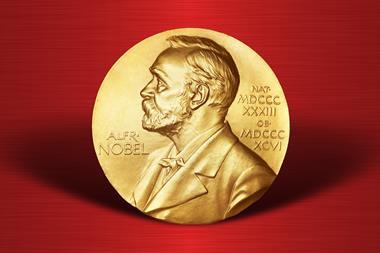Prize-winning topics produce more papers and are better able to retain talent and attract new researchers than non-prizewinning fields. The finding comes from an analysis by researchers in the US and China, who looked at the role prizes play in propelling scientific fields to new heights.
A team led by Brian Uzzi from Northwestern University, Illinois, analysed hundreds of scientific prizes and the impact they have had across more than 11,000 different topics. They found that prize-winning topics deliver ‘40% more papers and 33% more citations’ within 10 years than non-prize-winning topics that experienced similar levels of growth prior to the prize conferral. Topics recognised with awards also retain 55% more scientists and gain 37% more new contributors than non-prizewinning fields.
Prizes also seem to pique the interest of ‘star scientists’ – the 5% of most highly cited researchers within a broader discipline, for example physics or chemistry. Uzzi and his colleagues found that, following an award, 47% more star names will begin publishing in that area than in comparable non-prizewinning fields.
The researchers behind the study note that increased funding directed towards fashionable themes does not appear to account for prize-winning topics’ ‘extraordinary growth’. However, the amount of money a prize is worth and its specificity to a particular field do seem to be related to how rapidly that topic will expand over the following decade. In general, prizes seem to have an immediate impact, with increases in productivity beginning in the first year after a prize is awarded.
Uzzi’s team write that the findings contribute to our understanding of the ‘mobility of scientists between topics’ and ‘how the frontiers of science develop’.
References
C Jin, Y Ma and B Uzzi, Nat. Comm., 2021, DOI: 10.1038/s41467-021-25712-2

















No comments yet